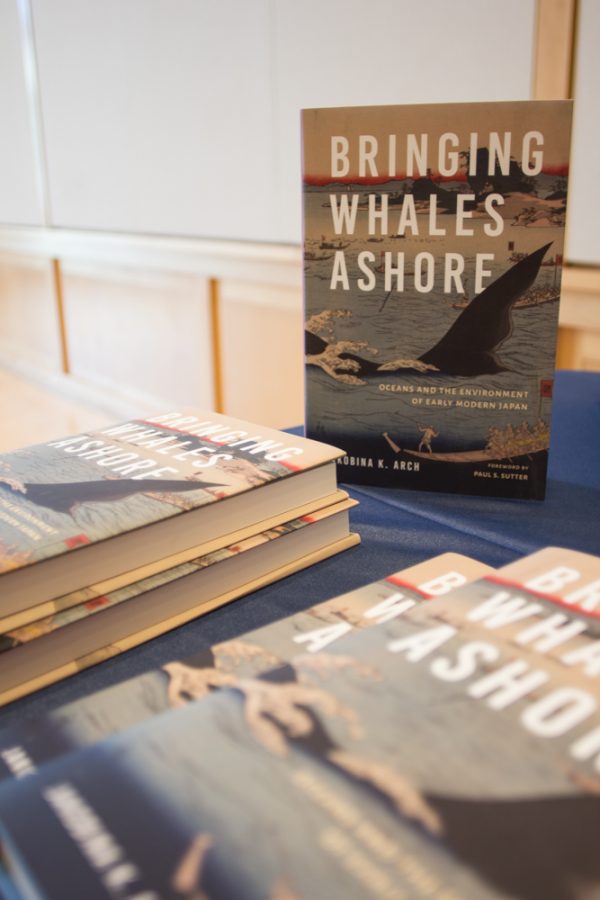When did earth become one big poubelle? (This means “trash bin” in French.) While on my way to the Marseille airport last week, my gaze approached the foreground after resting for a few moments on the familiar, though magnificent, red cliffs in the distance. Lining the highway were smaller, grey versions of these chiseled walls of rock, but nestled at their bases in the sparse grass that manages to survive by a busy highway there was an excessive amount of debris: an array of plastic bottles, cigarette butts, even the skeleton of a tent blown up against a little bluff. I first noticed the litter as the bus stopped outside the TGV station. The asphalt was covered with similar refuse at the edges of the short tunnel. Maybe this is an attractive place to litter, and I’ve grown accustomed to the hundreds of cigarette butts that typically cluster around bus stops, but the trash continued as we left the station and even increased as the bus made its way down the highway. How did all this trash get there? What happens to it now?
I few weeks ago, I, Richael Best, writing now from Aix-en-Provence, went to an environmental conference in Strasbourg with seven other students from the Institute for American Universities who applied, like me, for the opportunity to attend the conference and for a fellowship that would fund our travels. As the IAU website details, “The conference explores the differing perspectives of Europeans and Americans on issues ranging from energy use, genetically modified food and climate change. There [was] special emphasis on the issue of ‘Ecocide’ and whether it should be made a crime against peace and subject to the jurisdiction of the International Criminal Court. British environmental lawyer, Polly Higgins, detailed this issue in her keynote address at the opening plenary session.”
Over three days, our group of over 50 international students attended multiple environmentally-related lectures and had discussions both with the speakers and among ourselves, comparing our diverse perspectives, brainstorming ideas and solutions, and questioning our beliefs, uncertainties, and confidences.
I’m not at all an expert on environmental issues, nor do I have much experience researching or talking about climate change, environmental initiatives, or politics in general. I do, however, go to school on a fairly environmentally aware campus where my friends have worked to encourage pro-environment legislation and start an industrial composting system on campus. I always felt that I didn’t know enough to get involved, or that it was too big of a problem to tackle, and that the experts should handle the real changes. I submitted to this frustrated, ignorant-yet-cynical apathy. This conference helped me see a little better the enormity of the problem and how many people have ideas about saving the planet. The problem is that there still aren’t nearly enough of those people. Most people, like me, know that we have a problem. The earth is warming quickly and catastrophe may strike after a few hundred years, if not tomorrow. But can we really do anything about it as average citizens?
I still don’t know what exactly each of us should do, but I do know that letting the so-called “experts” do all the work is not enough. With the earth’s population spiraling out of control and no idea how to revamp our systems of producing energy, we’re in a big mess. And it could very well get too big to fix.
This grande poubelle is the only planet we can live on. So we’re living in a trash heap. What are we going to do about it? It requires everyone’s participation. This thing is too big for anything less. Eradicating ecocide is one step in the right direction, though there are many other changes required to halt climate change and preserve a comfortable living environment. And partisan politics should not be part of the discussion. Environmentalism shouldn’t be left wing or right wing––the planet belongs to all of us, and we’re all going to be in trouble if we don’t do something fast. No matter who is in power, we have to find clean energy sources, repair sites that have already been destroyed, and change our mentality from one of blind consumerism to one of sustainability. We’re not going to eliminate our capitalist society, but we can make our consumption cleaner and control its excess.
I was used to composting virtually everything when I lived in San Francisco because the city makes composting easy. Now, in France, where even recycling bins are hard to find, it makes me wonder how much the world is really doing for the environment. Small changes like bringing reusable bags to the store or driving a hybrid are all very well, but most of us are still buying new clothes and flying to places far and wide. Even reusable water bottles need materials and production and have to be bought by the consumer.
It is tempting to let the scale of the problem overwhelm us to inaction. It seems, for example, that the Maldives will soon be underwater regardless of what we do. And perhaps it is too late to prevent the sea from rising just a little bit. But we cannot continue to let impending problems reach the point of no return. For me, one of the saddest things is when it is “too late” for something to happen. Too late to catch the bus, too late to apply for a job, too late to change one’s major, too late to become a gymnast, for example. Of course, all of these unfortunate situations are not the end of the world. But this time, it could really mean the end of the world. Maybe not in our lifetime, but certainly sooner than one would wish.








Dan • Jan 15, 2013 at 2:24 pm
Hi, I am thinking about applying to IAU France program for this coming fall and I’m considering doing the French Honors program but my french is a bit rusty. I took 4 years of french in high school but it’s been almost 3 years since I’ve been in a french class. With a lot of review before going, do you think I’d be able to handle the french tout le temps environment?
By the way, I really like the blog, it has really helped with deciding where to go to study abroad!